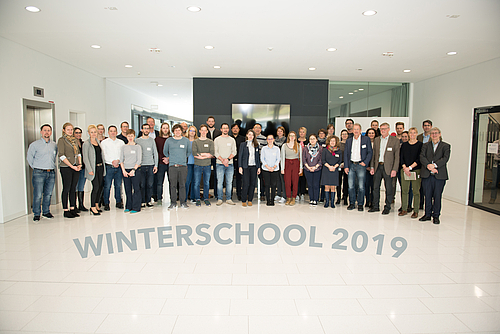The German Research Foundation (Deutsche Forschungsgemeinschaft) has been funding the "Priority Program 2014 - Towards an Implantable Lung" for six years with a total amount of 12.6 million euros since 2017. Clinicians and basic scientists at MHH are working with the Aachen University Hospital and the RWTH Aachen University, which is coordinating the program, as well as the University Hospitals of Regensburg and Tübingen, to develop a so-called biohybrid lung, i.e. an alternative to transplantation comparable to an artificial heart,
The basis for the "biohybrid lung" is the extracorporeal membrane oxygenation (ECMO) support system, which can temporarily support or even take over lung function. A long-term use is not yet possible because the body reacts to the artificial membrane surfaces of the ECMO, with the formation of blood clots. Technically, the ECMO is similar to a heart-lung machine. The device continuously pumps blood through an oxygenator that replaces the gas exchange of the lungs: carbon dioxide is removed and the blood is oxygenated. The ECMO uses special gas-exchanging membranes that are colonized by endothelial cells.
In February, the first Winter School of the priority program was held at the MHH in the premises of the NIFE (Lower Saxony Center for Biomedical Engineering, Implant Research and Development). The event was aimed at PhD students and young postdocs in the priority program and was intended to provide an opportunity for interdisciplinary exchange and networking with each other and with PIs.
Thematically, there are overlaps with research at the German Center for Lung Research, in particular the disease area “End Stage Lung Disease" (ELD), which is particularly active at the MHH. The optimized use of ECMO and its further development is one of the core topics of ELD scientists at BREATH, the Hannoverian site of the DZL. In order to strengthen the scientific exchange between the two research groups, young scientists from the DZL were invited to take part in the winter school.
Prof. Dr. Axel Haverich, Director of the MHH Clinic for Cardiac, Thoracic, Transplantation and Vascular Surgery (HTTG) and Program Director at Hannover, explains: "The special feature of this cooperation is that clinicians work together with engineers and basic researchers on a common goal , There is a pressing need to bring together the scientists of the priority program with those of the DZL. Time for exchange is especially important for the success of the program. "
In his keynote speech on the clinical necessity of biohybrid lung disease, Prof. Tobias Welte, clinic director of pulmonology at MHH and director of BREATH addressed why the work of the young scientists is so important. Other lectures addressed. the challenges of coating the gas exchange membranes and the mechanical intricacies to be considered in the construction of ECMO equipment
In addition to the scientific lectures, the program allowed sufficient time for the intensive exchange of the participating scientists, clinicians and engineers, which was utilized to deepen the cooperation of this interdisciplinary team.
Text: BREATH / CD
Picture: MHH / Junge

The participants of the DFG's priority programm "Towards an implantable lung"'s winter school.
![[Translate to English:]](/fileadmin/_processed_/a/f/csm_Winterschool_f6dee82acc.jpg)